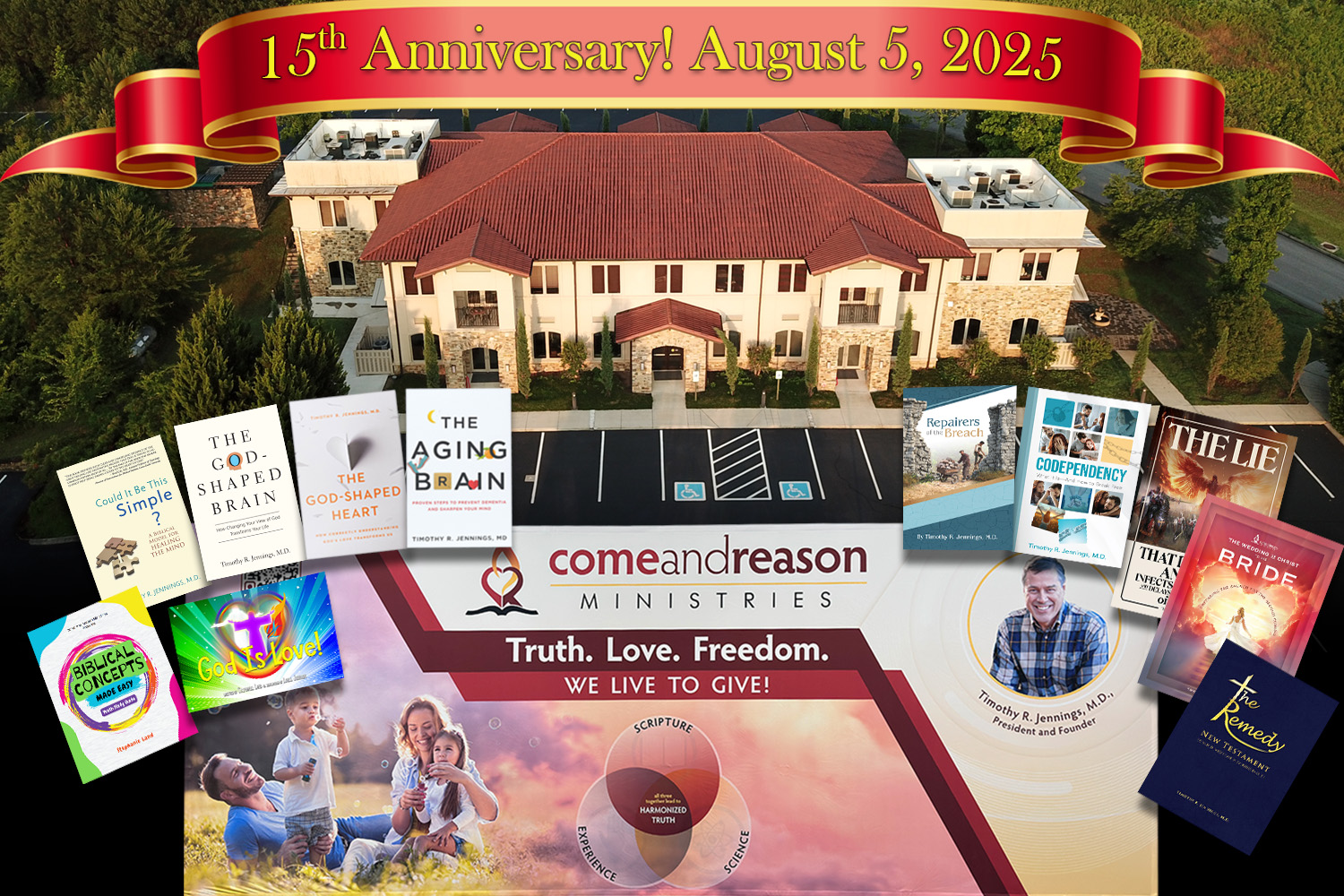I am hoping you can help me with an issue I struggle with. What exactly is forgiveness? I have read a lot about what it isn’t. I have your book, your DVD, and your CDs. I have read, watched, and listened many times and struggle with this.
When Christ said to the father, “forgive them for they no not what they do,” exactly what was Jesus asking God to do? Show mercy? Accept them for who they are? What? What does it mean in the Lords prayer when it says, “forgive us our debts as we forgive our debtors”? What exactly does it mean to say “they owe me nothing?” Where do boundaries fit in with forgiving especially when there is no possible way of reconciliation? What do you do with all the well meaning advise that “Christian people” constantly give about how I am to “forgive,” which in most people’s mind is reconciling. Am I to hold no ill feelings in my heart towards them? Every time I think of them am I to have warm fuzzes? Is that realistic? Is that possible on this earth? What exactly is expected of me in this process? If you could please explain in more detail it would be helpful.
Anonymous
You are not alone in your struggle to forgive. Forgiveness goes against our “natural” human desire. Our natural human desire wants vengeance, too often disguised in church-speak as “justice.” What is forgiveness? There are two aspects or types of forgiveness and people often confuse the two leading to struggles similar to yours.
Forgiveness aspect number one: Forgiveness is the process whereby we heal after injury. It is the process of love overcoming selfishness in the heart of the offended. It is the process of obstructing the spread of sin and extending the kingdom of God – love. This forgiveness occurs within the heart, mind, soul of the one injured or wronged. If we struggle against this type of forgiveness it would be like resisting sutures after a laceration, or refusing physical therapy after a broken leg. When we forgive an offender we do not change the offender, instead we uproot the evil seed the offender planted in our hearts when they sinned against us. The offender is changed, not by our forgiveness, but by their repentance and reconciliation with God. The offender can experience the transforming and healing power of God in their life regardless of whether we forgive them or not. Our forgiveness of an offender does not determine the outcome of the offender’s life, it determines the outcome of our life. Why? Because if we refuse to forgive, but instead hold to resentment, anger and bitterness our hearts harden and our characters warp unfitting us for eternity. It is only by forgiving those who have injured us that we move forward in God’s healing grace.
Forgiveness aspect number two: Forgiveness can also mean the entire process of reconciliation, the position in which the offender stands. When we speak about a person being forgiven, we can be speaking in regard to the heart of the offender or the experiential state of the offender. Jesus has forgiven those who crucified Him. In this case “forgiven” is in regard to Jesus’ heart attitude. But for those who crucified Jesus and never repented but instead continued to oppose Jesus, they remained untrustworthy and reconciliation with God did not occur. Thus even though Jesus has forgiven them in His heart, those offenders, having not opened their hearts to receive that forgiveness, remain in an unforgiven state.
When Jesus said to the Father “forgive them they know not what they do” Jesus was not asking the Father to do anything, but was revealing the heart of the Father. Jesus was demonstrating what the Godhead had already done in Their heart toward all of us who have opposed God. “Jesus said, ‘When you have lifted up the Son of Man, then you will know that I am the one I claim to be and that I do nothing on my own but speak just what the Father has taught me… For I did not speak of my own accord, but the Father who sent me commanded me what to say and how to say it.’” ((John 8:28, 12:49). When Jesus spoke on the Cross He was demonstrating the heart attitude of God so that all would know what God’s heart is toward sinners. Thus all sinners may know with certainty that God’s heart is one of forgiveness. Those who crucified Him didn’t know what they were doing because they thought they were killing Him, but in actuality they were hardening their hearts against the only source of life and destroying their own souls. So, even though God’s heart was constantly one of forgiveness, they closed their hearts and failed to experience that forgiveness therefore remaining in the position of one unforgiven or unreconciled.
The Lord’s Prayer means if we refuse to forgive others we demonstrate that our hearts have relished hatred, vengeance, selfishness and refused love, mercy and grace. Thus when we refuse to forgive others it is evidence of an unregenerate heart in us. Just like those who crucified Christ, even though God’s heart is one of forgiveness, if we refuse to forgive others we close the avenue of our heart and mind to His grace and cut ourselves off from experiencing His regenerating power and therefore remain in an “unforgiven” state.
Boundaries are established based on the trustworthiness of the person in question. We may forgive someone but still not trust them because they have not changed and remain untrustworthy. And if they are untrustworthy we cannot reconcile with them. This is how it will be with God and the wicked who are lost. God’s heart will still be for them, loving and forgiving toward them, but the lost will be so solidified into selfishness and hatred toward God they are unfit for heaven and therefore a permanent boundary of eternal death is experienced.
To the degree we hold ill feelings in our hearts toward others it is evidence of further healing work we need in our hearts. Instead of ill feelings, when we come to love our enemies we move toward compassion, sympathy and sadness for them as we recognize that their evil lifestyle is destroying their own souls and disqualifying them for heaven. The closer we come to Jesus, the more clearly we see reality from a heavenly perspective and from this perspective our abusers are not to be hated, but pitied. Just as Jesus said, “they know not what they do.” In every act of sin we damage our mind, sear our conscience, warp our reason and debase our souls. Without reconciliation with God such damage is unhealable and the wicked will one day experience the full weight of their choices and be eternally lost.
In summary, forgiveness is the process of receiving God’s love and truth into the heart and allowing that love to heal and transform us to the point we relinquish a desire for vengeance or retribution or payback upon those who have offended us. We set the offender free and extend grace which has a further healing process upon us, our families and communities. We don’t trust the untrustworthy, but we also don’t hate or despise them. Instead, we experience a sense of compassion or pity for them knowing their evil course is destroying their own souls.









 using your credit or debit card (no PayPal account needed, unless you want to set up a monthly, recurring payment).
using your credit or debit card (no PayPal account needed, unless you want to set up a monthly, recurring payment). instead?
instead?